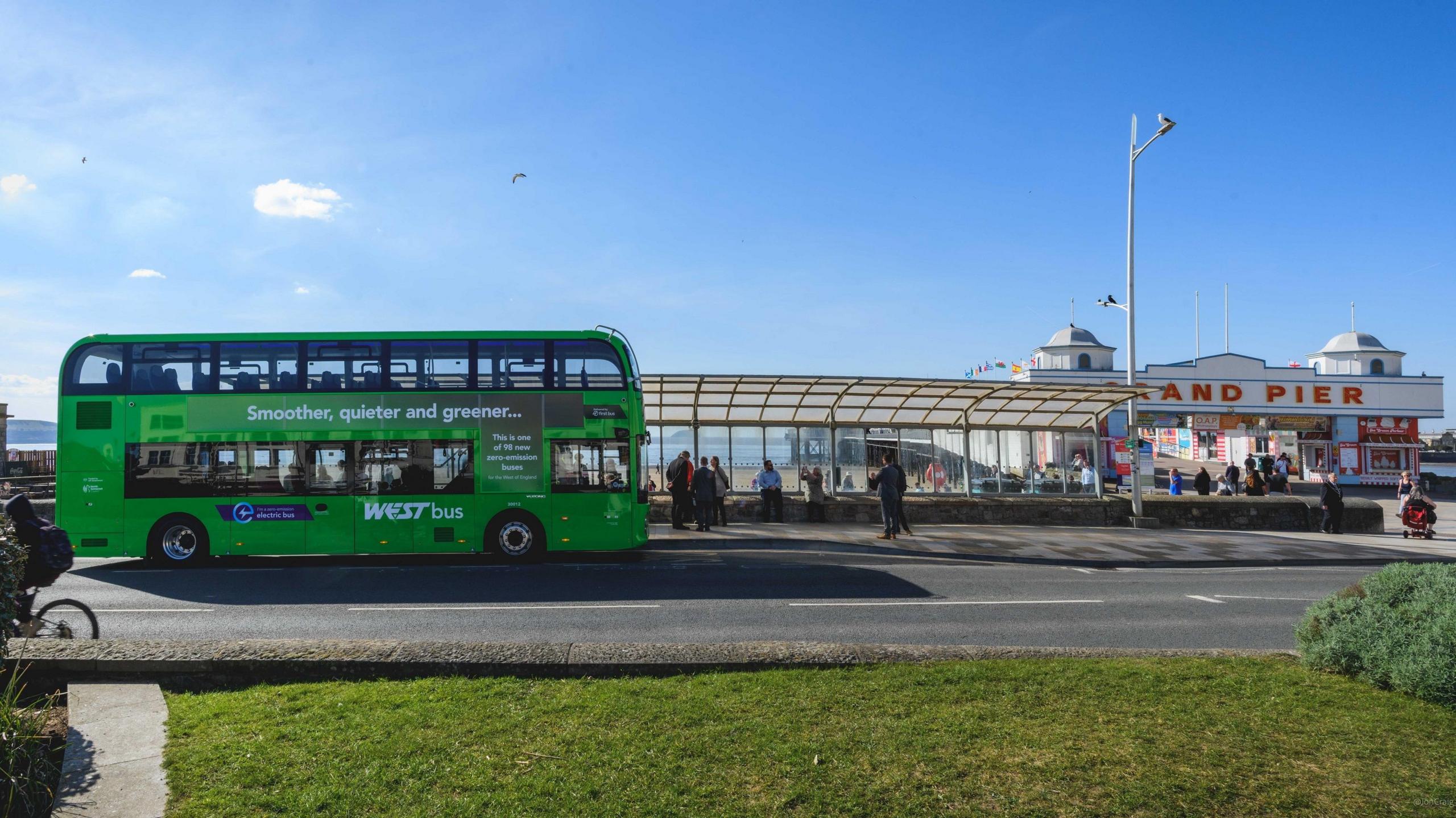Could the next Weca mayor take over running buses?
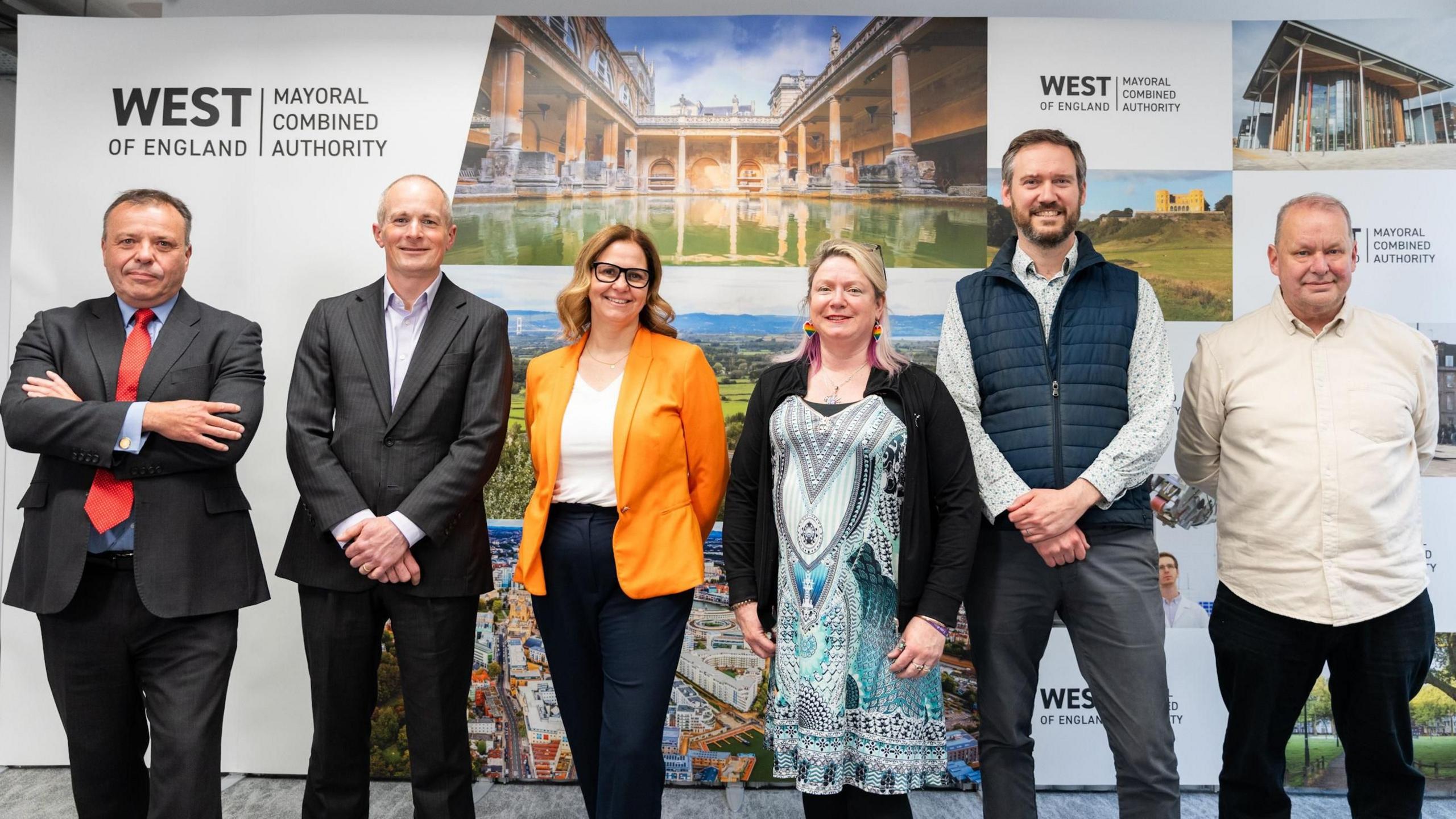
The six West of England Combined Authority mayoral candidates (from left): Arron Banks, Steve Smith, Helen Godwin, Mary Page, Oli Henman and Ian Scott
- Published
Most of the candidates standing in the election to run the West of England Combined Authority (Weca) are calling for the franchising of buses.
That would mean turning the clock back on 40 years of private control.
If it happens, the new mayor would decide on routes, fares and timetables.
But there are warnings that it could mean an increase to council tax bills.
It was 1986 when buses around Bristol and Bath were put into private hands.
Over the following decades passenger numbers declined, and dropped sharply amid the Covid lockdowns.
The main operator, First Bus, says since then there has been progress.
Passenger numbers have risen in the past two years, though are still below pre-pandemic levels.
Partly funded by Weca, it now runs more services on the most popular routes.
But a shortage of council funding led to many subsidised services being cut.
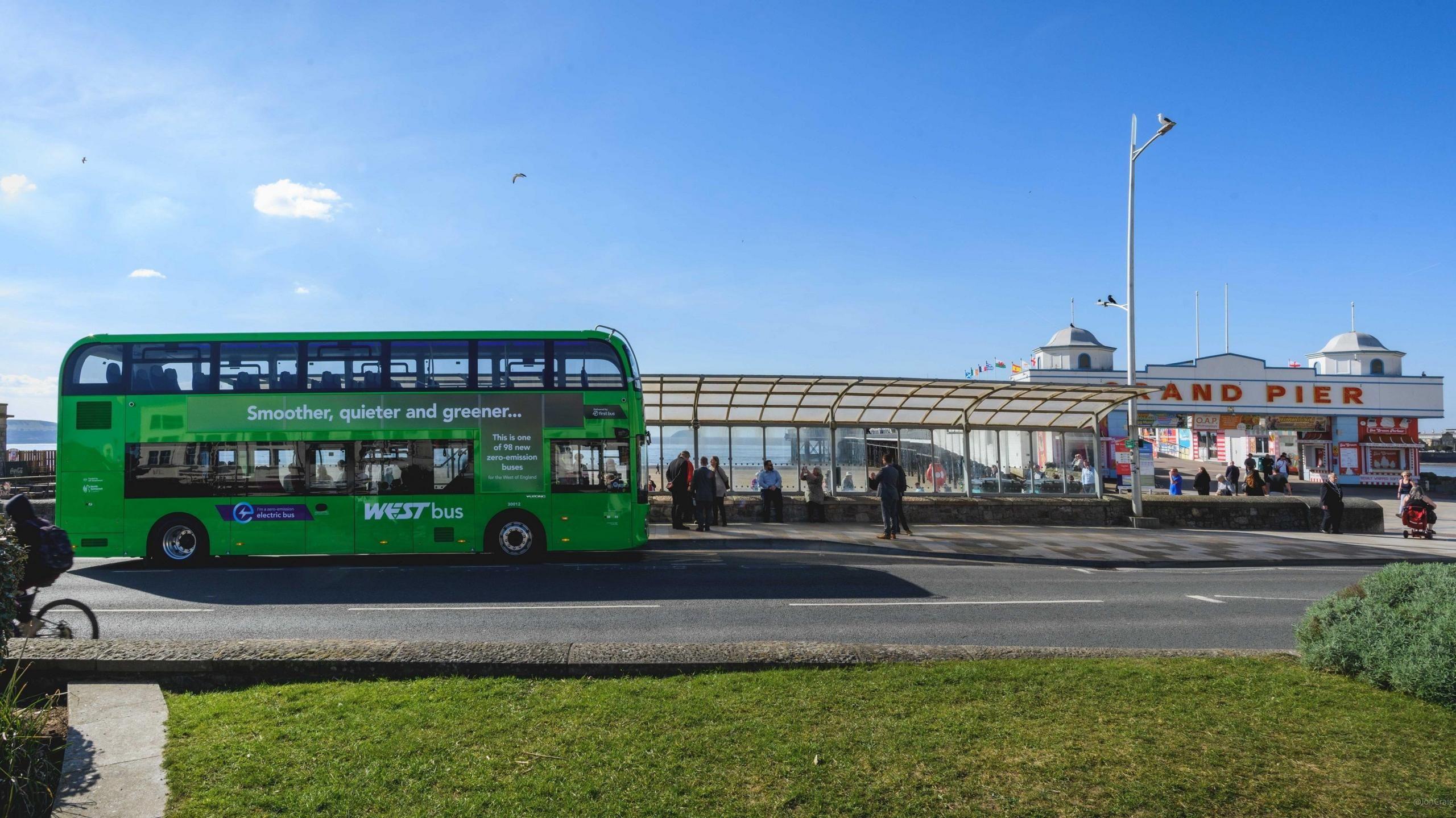
Under a franchised system, the local authority would have control over operating bus services
May's election could herald big changes. Five of the six vying to be mayor favour franchising.
That would see control of routes, fares and timetables taken out of the hands of private operators, and given to Weca.
Recent changes in the law have made it easier for mayors to do this.
Manchester finished its move to franchising in January 2025.
Liverpool, South Yorkshire and West Yorkshire are also aiming to make the change.
But it all comes with a warning: it will cost taxpayers.
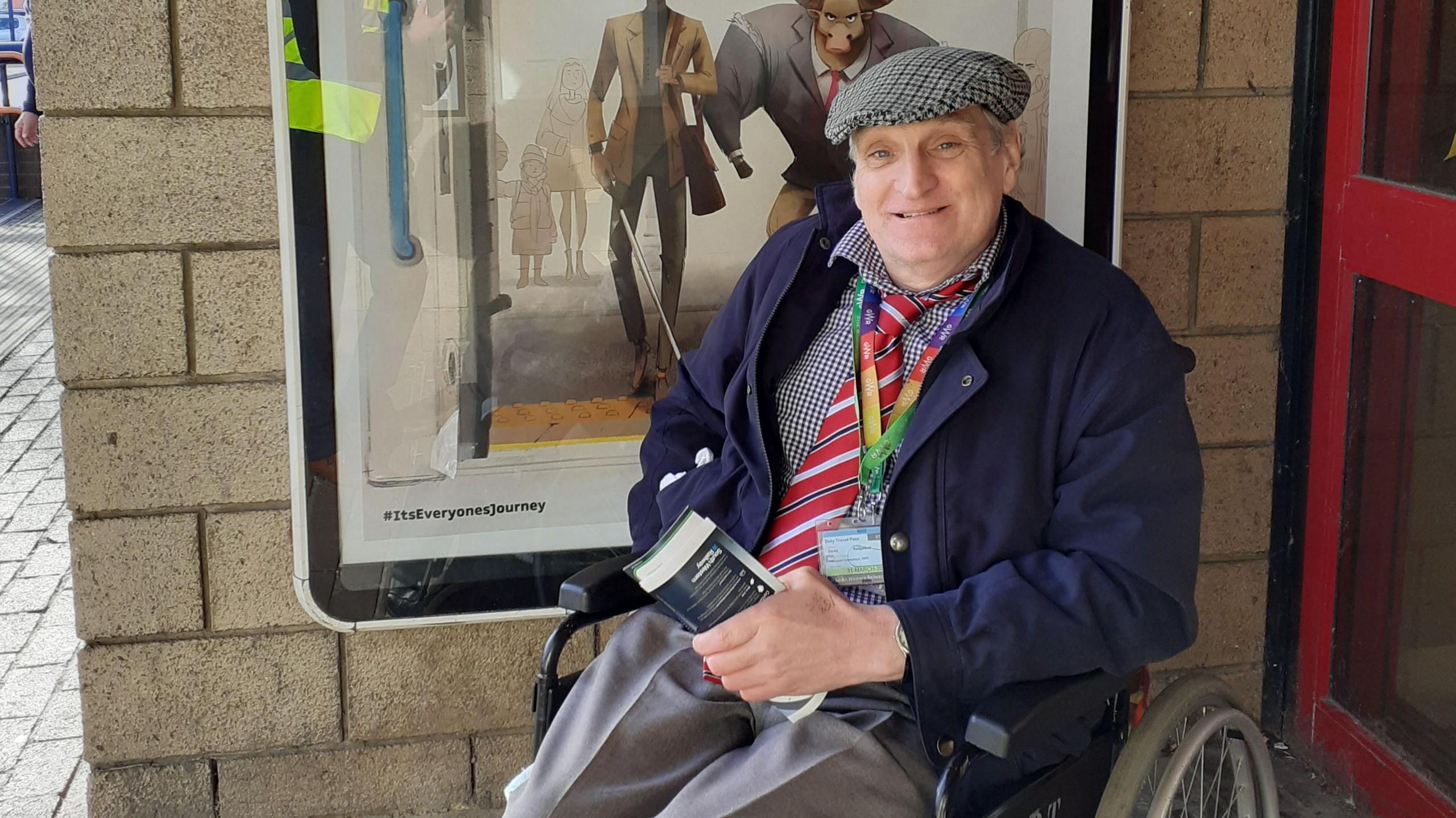
Bus campaigner David Redgewell said the scheme could either be financed through taxes or higher fares
The transition would come with a price tag; there would also be yearly running costs.
"It's the right way to go, but we've got to have the finance to do it," cautions bus campaigner David Redgewell.
"There are only two ways to pay for it. One is through the taxpayer, and your local taxes and government grants, and the other way is through fares."
However, it is not just down to who wins on 1 May. Any such change would take time – several years in Manchester's case.
And with set-up costs of tens of millions of pounds, it might be difficult at a time of such stretched budgets.
Get in touch
Tell us which stories we should cover in Bristol
Follow BBC Bristol on Facebook, external, X, external and Instagram, external. Send your story ideas to us on email or via WhatsApp on 0800 313 4630.
- Published6 April
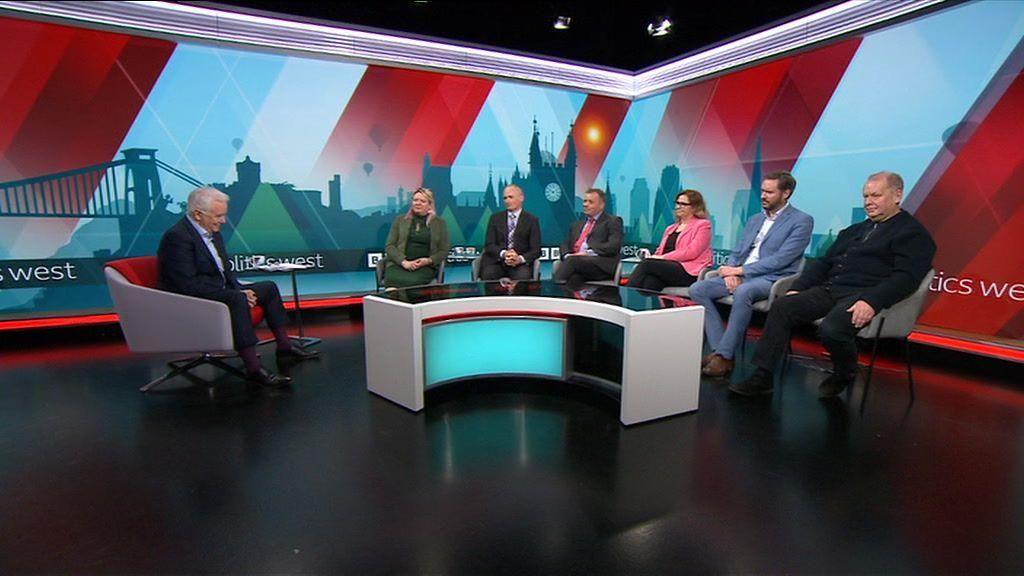
- Published5 April
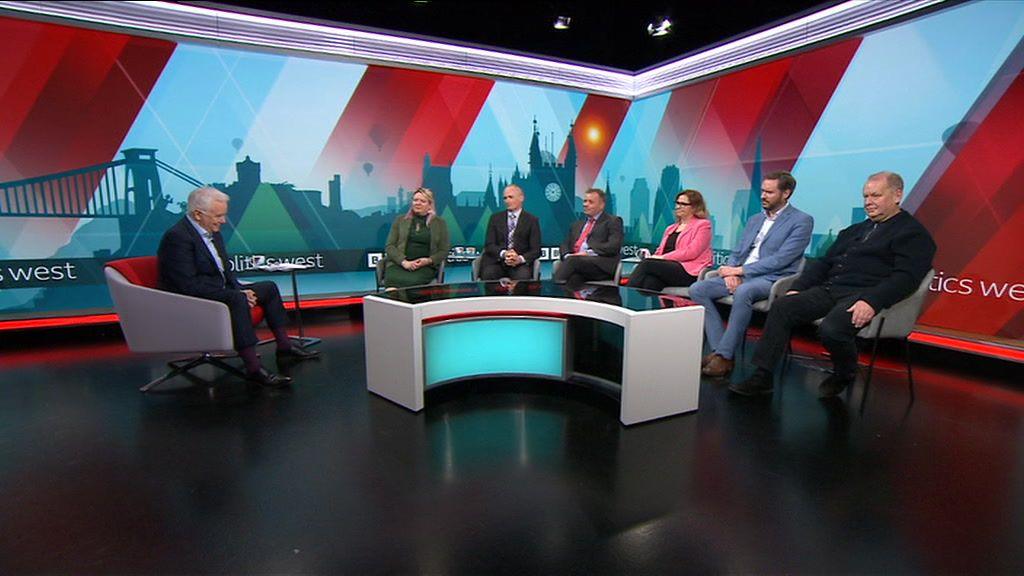
- Published12 May 2020
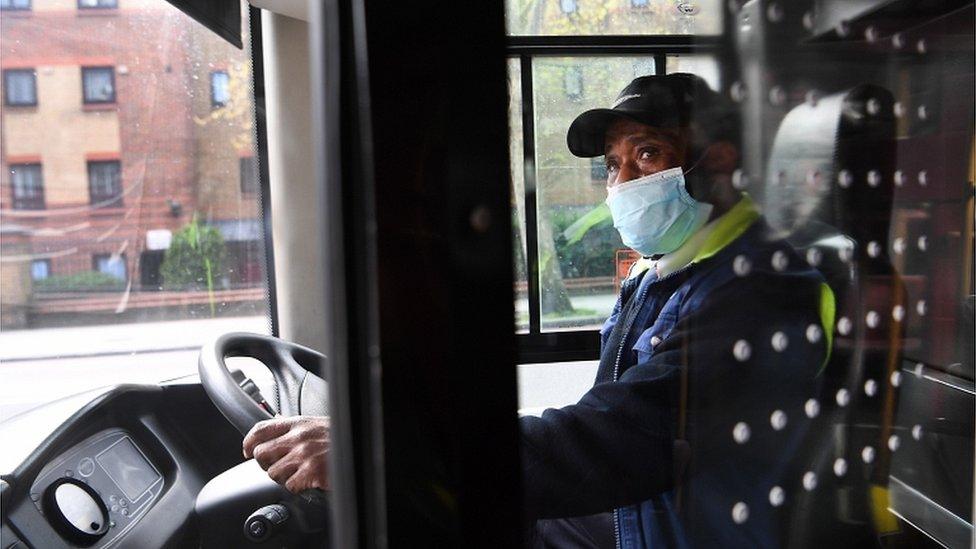
- Published8 April
